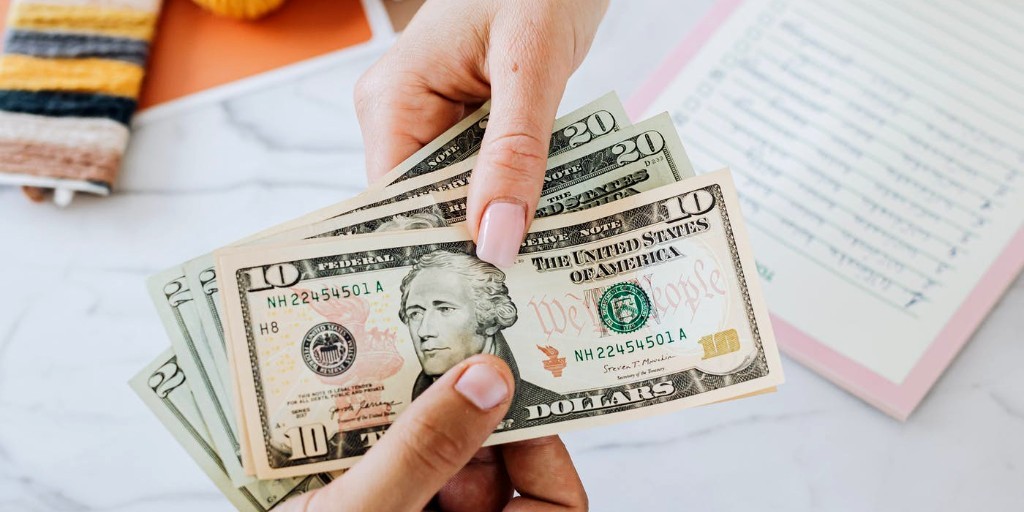Buy Nothing Day and Green Friday are relevant and much-needed awareness days. But, it would seem we’ve hit a conundrum when it comes to awareness days, with two that I fully support falling on the same day but asking us to do two different things. The awareness days are important to remind us of how much we buy, where our money goes, and where our purchases will end up! Both days have their merits and offer us a chance to reflect.
Let’s start with a newer awareness day to hit the UK: Buy Nothing Day.
Buy Nothing Day

Buy Nothing Day started in Canada in 1992 as a day to acknowledge overconsumption. In 1997, it moved to the day after Thanksgiving, so it falls on the 4th Thursday in November. Coincidentally, the same date as #blackfriday—one of the busiest shopping dates in the US.
Ultimately, my take on it all is that it’s a day to remind us to take stock of our spending habits. To look at all of the things we’ve acquired and maybe never used. This day is also a great way to review our finances and think about what we spend and why.
Having a Buy Nothing Day is a great opportunity to reflect on our everyday actions. Maybe if we can all take one day a year to slow down, we may start to notice that we are actually supporting businesses that are in conflict with the things we care about.
So, Buy Nothing Day, it’s a day to breathe, reflect, and give the debit card a rest.
Now, let’s move on to the awareness day that is gathering momentum: Green Friday
Green Friday
Over the past few years in the UK, we’ve started to see more businesses welcome Green Friday, which is a counter-movement to Black Friday, highlighting more conscious shopping instead. Some businesses are refusing to participate in the chaos that is Black Friday (and in some cases, we are seeing this madness span a whole week) and are instead opting for a Green Friday.
Some businesses are boycotting Black Friday by shutting their doors for a day, like Elvis and Kresse. Others are donating a percentage of profits to charitable causes or simply being transparent and saying they cannot afford to compete with the likes of Amazon, ASOS, and larger retailer chains.
And finally, how can I not mention Black Friday?

Black Friday

Many large retailers rely on this holiday to shift stock cheaply and quickly. They can afford to offer these big discounts, and contrary to what we may think, Black Friday is a retail selling strategy that many large retailers plan for. We think we’re getting a great deal, and in some cases, maybe we are, but we’re also pawns in their bigger plan to get us to spend our hard-earned cash on things we don’t need and that probably won’t last long either
The trouble with Black Friday is that it’s unsustainable. Almost 80% of all impulse purchases end up unloved and disregarded. Then we have to consider where these items will end up and also account for the impact on the environment for all of the ‘postage’ and ‘transportation’. Let’s not even talk about returns…
A report by Green Alliance found that 80% of items purchased during Black Friday deals (of which half are electronics and a third are clothes) will end up either in landfills or incineration after a very short life.
Every year, we add to this waste by engaging in more Black Friday-frenzied shopping. The real problem I have with it is that the guilt and shame rest on the consumers’ shoulders. We tell people that mindless consumption is bad and not recycling is bad. But where is the accountability for the businesses that churn out all of the products? Where is the government legislation to prevent unethical marketing designed to coerce people to spend before the bargain offers expire—and you’ll have to wait another year, or worse, still miss out completely?
Letting Go of Ownership
Is renting instead of owning the next big thing? Millennials are definitely helping redefine the sharing economy and letting go of ownership, from houses, cars, tech, clothes, and furniture. An article from 2019, Generation Rent: How Millennials are Fueling the Rental Economy, stated that “female renters are more likely to rent furniture, clothes, and jewellery, while male renters are more likely to rent tools and gaming systems,” and I could completely relate and see sense in this.
Some fantastic websites I’ve seen that encourage the sharing economy include:
1. FatLama – is a trusted marketplace for buying, selling, and renting. You can lend and sell pretty much anything to earn more from your stuff. I think it’s fantastic as it allows you to access things like a drill, professional studio lighting, baking equipment, or even a bike—anything for the rare occasions you may need it.
Now, this was a website I didn’t stumble across through a Google search. My zero-waste friend Laura Zabo who lives lightly, owns very little and enjoys her life fully, shared the website with me.
2. My Wardrobe HQ and By Rotation are both luxury fashion rental platforms that make it easy to access clothing that may be financially out of reach to ‘own’ but you can simply enjoy it for a few days and then return. I have used both of these to rent out items, and I fully intend to use these to rent from for future events when I need something extra special, but just for one occasion.
3. Clothes Swapping is a great way to inject fresh items into your wardrobe without having to buy anything new. Very often these apps are full of clothes with their tags on and owners just looking to get rid of the surplus items clogging up their wardrobes, but equally open to swapping instead of selling if you have something they want too.
4. Shopping for Preloved Clothes is a much more sustainable way to shop. As much as it pains me to admit it, I’m not a minimalist, and I own a large wardrobe (or two). But this doesn’t mean I am not passionate about the environment. I don’t want to fuel a capitalist system that rewards people who don’t care about the triple bottom line. So, how can I keep my lust for new items satisfied? Well, I have a little system: I sell pieces on these apps and then use the money from the sales to buy new things as and when I need them.
Buy Nothing Day or support Green Friday?
To summarise, there’s merit in supporting both, but it’s hard to do that when they fall on the same day. I think #GreenFriday is already gathering good momentum, and there is a risk that Buy Nothing Day will be overshadowed. This particular day would be more impactful if it were moved to Wednesday before Green Friday (instead of sharing the date). This would encourage people to stop and think before indulging in discounted shopping.
I would also like to add that we shouldn’t judge people who take part in Black Friday either. In England, many non-essential shops were forced to close during The Lockdown 2.0, and the knock-on effect has caused a lot of job losses. Black Friday still represents an opportunity for many to afford things they couldn’t get at any other time of the year.
I think it’s important to recognise that many small businesses will participate in #BlackFriday to try and capture some of the sales too, and we shouldn’t judge them either.
In my recent interview with CGTV, I also suggested that “there is something else that is even better than not buying anything or renting. It’s actually thinking about giving back—acts of kindness and acts of service don’t cost anything. It’s a really nice opportunity to think about what you can do without having to spend money.”
You can read my interview with CGTN Europe here: “Buy Nothing Day: An Antidote to Black Friday Consumption?“
Final Thoughts
Use the day to reflect on whether owning more things has truly brought you joy or simply added to the clutter and stress in your life. Does ownership always make sense, or could renting be a better option? This applies to everything from electronics and tools to clothing.
For me, Buy Nothing Day is an ideal opportunity to audit what you already own. Take stock of your possessions, identify any excess, and pinpoint any genuine gaps. If you decide to shop, consider participating in #GreenFriday to support brands striving to make a positive impact.







2 thoughts on “Buy Nothing Day Vs Green Friday”
Roberta, your insights into Buy Nothing Day and Green Friday are thought-provoking, highlighting the importance of mindful consumption. It’s fascinating to see the push towards a sharing economy, which not only addresses overconsumption but also accessibility. Speaking of accessibility, in cities like London, services that offer wheelchair hire are a testament to the sharing economy, providing practical solutions that support inclusive tourism and mobility for all. Your article is a compelling call to reflect on our purchasing decisions and their wider social and environmental impacts.
(lendocare)
Thank you! Much appreciated. Good to know that London is providing better accessibility options and utilising the sharing economy.